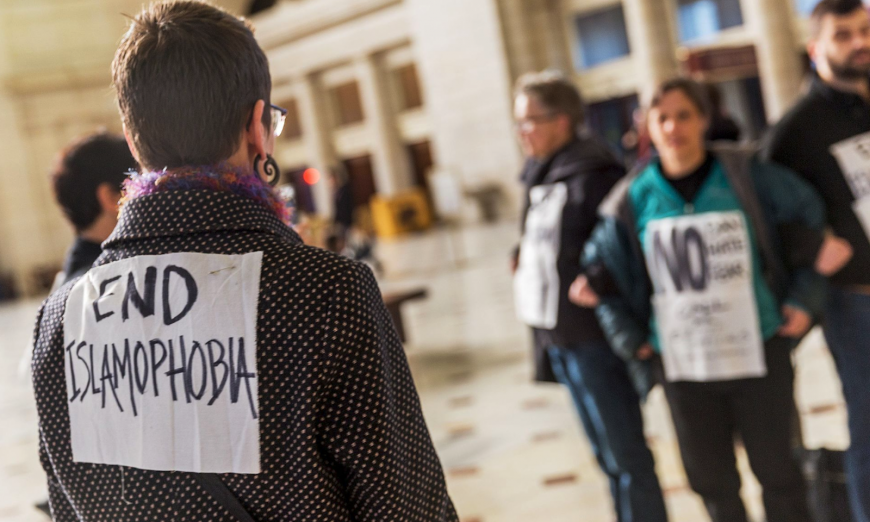One columnist at the Hürriyet daily — the number one white Turk newspaper — revealed that his step-grandmother was Armenian. After passing his 60s, he “confessed” this and expressed his sympathy toward non-Muslims. Another columnist from the same newspaper wrote an emotional piece about his Greek Orthodox friend, a Turkish citizen who wanted to be a marine colonel, but was turned down because of his ethnic identity — this is a well-established state tradition in “secular” Turkey: non-Muslims cannot be state officials, hence you cannot see a single military or police officer who is of Greek, Jewish or Armenian descent. This columnist, all of a sudden, became sensitive to the fact that his old non-Muslim friend was not able to realize his childhood dream. What is the reason for this sudden illumination? He has been a columnist for ages. He and his friend of Greek descent have known each other for a long time, but he wrote this emotional column, in which he invites white Turks to understand and to be sympathetic to his friend’s pain, just a few weeks ago.
Both of the columnists I just mentioned work and write for a newspaper that has a very strange motto: “Turkey belongs to Turks.” Now, what would you think if columnists of a German newspaper whose motto reads “Germany belongs to Germans” all of a sudden started expressing their sympathy towards Jews? Wouldn’t you be a little suspicious?
An interesting survey
Well, I was a little suspicious. While I was trying to understand the reason behind this sudden love-fest between Turkey’s white Turks and non-Muslims, I came across a recent survey carried out by Professor Füsun Üstel and Associate Professor Birol Caymaz. The survey’s title is “Elites and Social Distance.” The stated aim of the survey was to understand how Turkey’s elites see themselves and “others.” It is an interesting study, and you can read a brief summary of it in the June 6 edition of Today’s Zaman (“‘Elite’ Turks unwilling to share power, prosperity with ‘others’”). According to this survey, the elites — the white Turks — see themselves as the carriers and protectors of the republic and its values. This is not surprising of course. There is something else, however, which is really interesting: almost all participants in the survey have non-Muslim friends and they speak sympathetically about their problems. When I looked at the other parts of the survey, I understood the root causes of this “sympathy.”
Islamophobia
According to the survey, the participants consider Justice and Development Party (AK Party) deputies “occupiers” who do not deserve to be represented in Parliament. One of the participants says she abhors seeing a woman wearing a headscarf in the Çankaya presidential palace, referring to the wife of President Abdullah Gül.
Another participant states that she is irritated when she sees a covered woman around: “I try to act as if there are no women wearing headscarves around me. But there are too many of them,” she says. She and almost all the others surveyed detest the idea of covered women attending universities. They also have quite a close-minded stance when it comes to the Kurdish question and the issues surrounding it.
How should we comment on their sympathy towards non-Muslims? I think, first of all, their interest is shallow, devoid of any real empathy or depth. When we look at the other parts of the survey, we can see how shallow they are. “We prefer not to talk about the problems of minority groups,” one of them says. “We are afraid our relations may get tense if we do so.” Another one unveils his ignorance, saying, “Non-Muslims may have been subjected to injustice in the past, but the situation is very different now.”
Selective tolerance
Basically, our secular Turkish elites have become sympathetic to the bourgeois, well-educated, non-Muslim figure as an individual because they are now extremely allergic to devout Muslims who compete with them in business and who have started to be more and more visible in commerce, industry and manufacturing sectors. Secular elites cannot tolerate and digest this new religious middle class. How can the underclass of the past, the practicing Muslims, dare to be equal to them? They are sympathetic to non-Muslims because they do not see them as a threat to their economic interests any longer.
Our non-Muslims are so few now, so how can they be a threat? Once upon a time, they were the “fifth column”; they were the ones who were detested. So our elites put their message on the most visible part of their favorite newspaper: “Turkey belongs to Turks.” This paper, and its predecessors, were the ones who actively encouraged pogroms against non-Muslims, and they achieved their aim of getting rid of the non-Muslims through their endless hate-mongering campaigns[1]. Non-Muslims left, but their property stayed here, so our elites have no problem with them any longer. Of course, this is true to the extent that the individual non-Muslim remains silent and does not bring up any ugly history. If he is a good boy in this way, then he can be a friend of our Turkish elites, who now have a big problem with practicing Muslims.
In other words, the Turkish elites have new enemies to hate so the old ones can be left alone. The old motto has died, long live the new motto, “Turkey belongs to secular Turks.” Not a terribly impressive sign of tolerance — what do you think?
![]()
http://www.todayszaman.com/tz-web/yazarAd.do?kn=102

